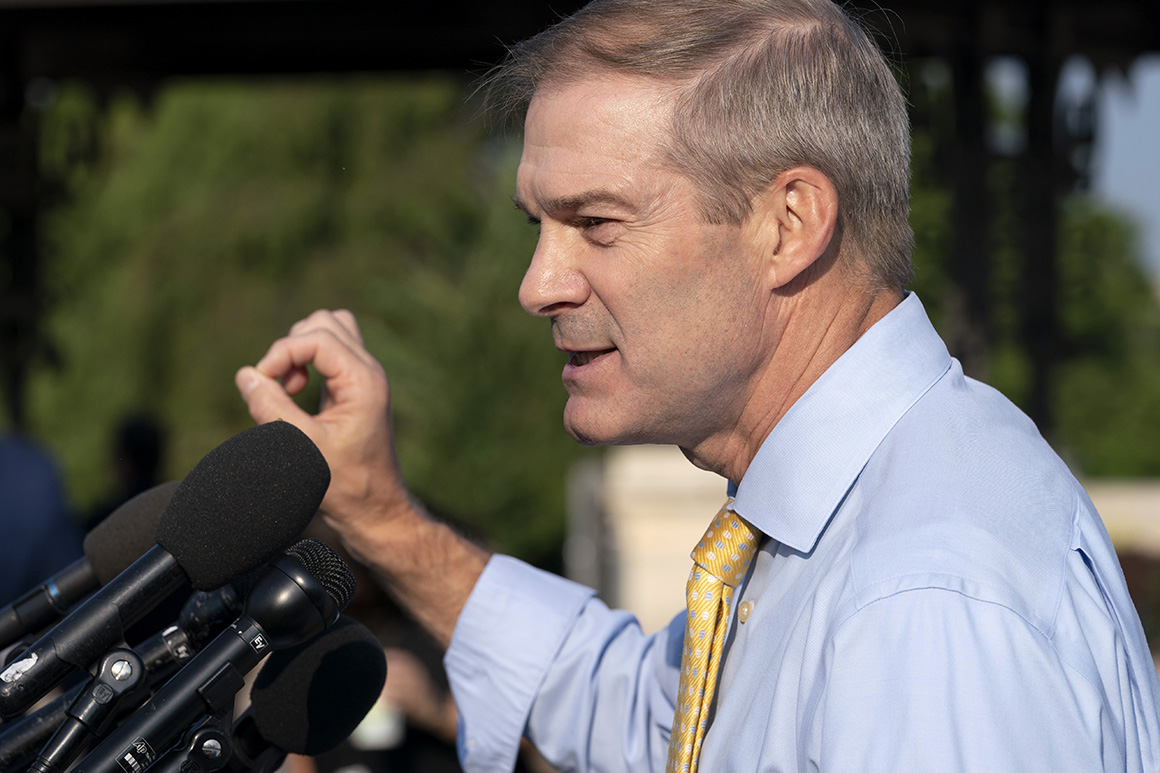Rep. Jim Jordan, one of former President Donald Trump’s closest allies, said Sunday evening he would not cooperate with an interview request from the select panel investigating the Jan. 6 attack on the Capitol, calling it an “unprecedented and inappropriate demand.”
“Your attempt to pry into the deliberative process informing a Member about legislative matters before the House is an outrageous abuse of the Select Committee’s authority,” the Ohio Republican said in a four-page letter to Rep. Bennie Thompson (D-Miss.), the panel chair.
Jordan’s decision follows a similar rejection by Rep. Scott Perry (R-Pa.), the only other lawmaker whose testimony the committee has requested so far. Although Thompson initially indicated the committee might pursue various “tools” to force recalcitrant lawmakers to comply, he has since suggested that the panel may have little leverage against lawmakers who don’t cooperate voluntarily.
Instead, Thompson has indicated the panel will use the “court of public opinion” to reveal lawmakers’ conduct ahead of and on Jan. 6 — via obtained messages and testimony — and leave it to them to explain why they didn’t cooperate with investigators.
A select panel spokesperson said the committee would respond to Jordan’s letter more in the “coming days” and would “consider appropriate next steps.”
“Mr. Jordan has admitted that he spoke directly to President Trump on January 6th and is thus a material witness,” a panel spokesperson said. “Mr. Jordan’s letter to the committee fails to address these facts.”
Jordan was among the House Republicans who worked most closely with Trump in the run-up to the Jan. 6 session of Congress meant to finalize the 2020 presidential election results. He also has acknowledged speaking with Trump at least once after rioters had overtaken the Capitol.
The panel sent a letter to Jordan on Dec. 22 seeking an interview with him about his conversations with Trump on Jan. 6, communications with Trump’s allies about actions and strategies on Jan. 6, and efforts to overturn the results of the 2020 election.
The committee recently revealed a text message from Jordan to then-White House Chief of Staff Mark Meadows on Jan. 5 in which he forwarded a strategy for blocking Joe Biden’s election. According to Jordan, he was passing along a plan sent to him by a former Pentagon inspector general. His aides have declined to say whether he supported that strategy or why he decided to send it to Meadows.
Jordan has frequently insisted he has “nothing to hide” when asked if he would cooperate with the Jan. 6 select committee, and he has expressed uncertainty about whether he had one or mmultiple conversations with Trump on Jan. 6 — both before and after the riot.



















